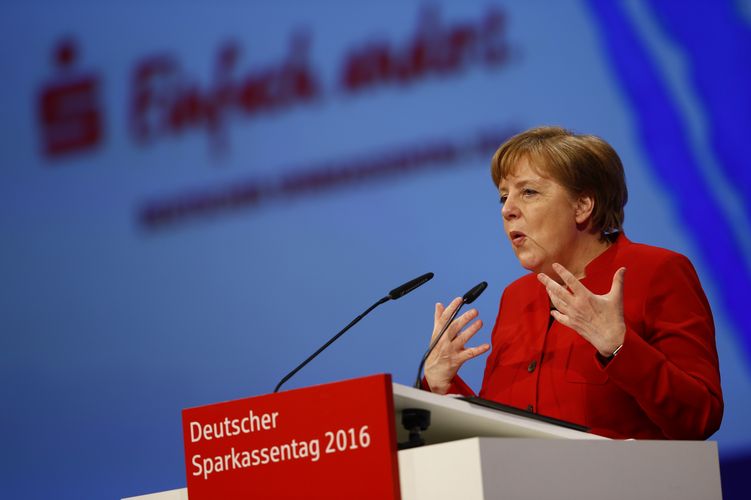(This article was originally published by the Official Monetary and Financial Institutions Forum (OMFIF) in the The OMFIF Commentary.)
UK membership of the European Union is clearly, for many British people, a highly emotive issue. We have seen this during the last few days in the invective displayed against visiting US President Barack Obama by some of those who wish to quit the EU.
Speaking personally, I may say that the vituperative anti-Obama criticism employed by Boris Johnson, the mayor of London, a leading proponent of UK departure, would appear to disqualify him from the office of prime minister to which he evidently aspires.
As a German, perhaps I may be excused if I, too, voice a degree of emotion on this question. A 14-year-old in 1945 in ruined Hamburg at the end of the second world war, I lived through Germany’s total physical and spiritual collapse. The worst part was the complete dismembering of all hope. With my own eyes I witnessed how many of my fellow human beings took their own lives, driven by sheer desolation and despair.
After plumbing these depths, the young people of that time, my generation, pinned their faith on a better European future. We aspired to build a continent that would be united, so we believed, in peace and co-operation. We were following some of the basic wishes of the conspirators behind the assassination attempt on Adolf Hitler on July 20 1944, including my father, whom the Nazis hanged three weeks after the failed plot. Ever since the 1957 Treaty of Rome we supported ‘the European project’, bringing together again the continent’s once-warring nations.
The British, so I learned during my years at Gordonstoun boarding school in Scotland under headmaster Kurt Hahn, saw things differently. This was the lesson they drew from history. Britain’s most dangerous foes had always been the great disruptive European powers: Spain, France under Napoleon and, in the last century, Germany.
Despite these differences of experience and perspective, Britain was always, in the new Europe of the post-war decades, a highly important partner for the Germans.
And now we appear to have reached another turning point. With every ratcheting-up of the economic and monetary difficulties of the so-called ‘peripheral’ states of Europe, and as France grows increasingly unreliable and rudderless, agreement between Germany and Britain becomes progressively more crucial and more central.
I fear that, if the British decide to leave on June 23, this will be, for the Germans, an enormous disappointment.
Bereft of British support (even from outside the single currency), Germany could be hemmed in by a coalition of forces within the euro area – France, Italy and Spain – embarked upon economic and monetary policies inimical to German interests.
That could change the face of German politics, in a way that can hardly be foreseen, let alone controlled.
With Britain gone from the EU, and with the US seemingly drifting towards a new isolationism, the Germans would, once again, feel left alone. I do not wish it to happen but I’m afraid it might: the return of hopelessness, a period of darkness across the heart of Europe.
- Jan von Haeften is a former Supervisory Board Chairman of Franz Haniel & Cie.
